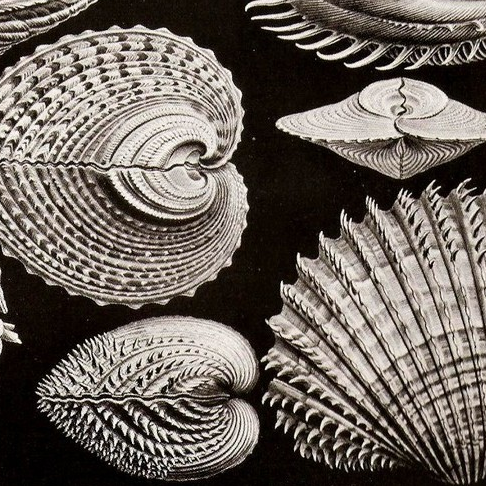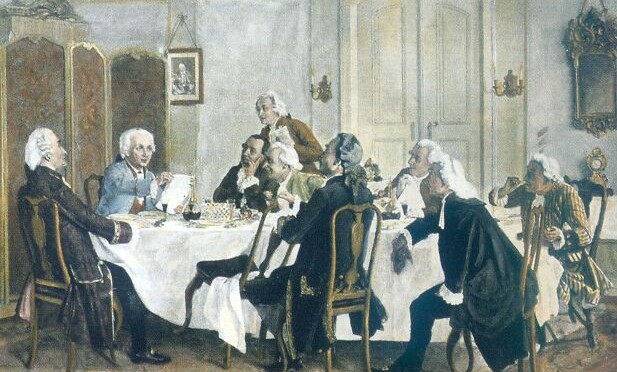By Roland Bertens
With the publication in 1781 of his Critique of Pure Reason, Immanuel Kant tried to prove that philosophical reason could be a stand-alone source of knowledge. Among the many followers and detractors immediately reacting to the first step Kant made on the road to ‘German Idealism’, one relatively unknown thinker should be rediscovered for his implicit contributions to 20th century critical philosophy.
From the Critique of Reason…
In the context of a course on the philosophies of the German Idealists – Immanuel Kant, Friedrich Schelling, G.W.F. Hegel and others, I stumbled upon a contemporary thinker critical of the late 18th century philosophical current often lumped under the heading ‘Idealism’. Idealism is usually taken to begin with the publication of Kant’s seminal Critique of Pure Reason in 1781, a book that is seen by many philosophers as one of the most important philosophical works ever written. In it, Kant performed an unprecedented feat of intellectual prowess, by arguing that rational thought ultimately allows human beings to discover the limits of their own reason. Moreover, one of the most tantalizing conclusions of the Critique was Kant’s deduction of various ‘categories’ through which the human mind perceives the world, such as time and space. This deduction led various thinkers following Kant to ask the question to what extent we can then ever know reality: how ‘real’ are our encounters with the world if these are always mediated by the inevitable categories framing our perception?[1]
The questions Kant raised led to a veritable storm of replies, critical examinations and new philosophical systems in the twenty years following the publication of the first Critique, testifying to its revolutionary approach to philosophy. Instead of relying on dogmatic preconceptions and axioms, Kant tried to provide philosophy with a new foundation in the age of the new empirical sciences, by fashioning reason into a precision instrument sharp enough to dissect even itself.
However, where most of the replies to Kant’s new approach were concerned with fighting him with his own weapons – systematic, rationalist philosophy – among the earliest critics of Kant we find one figure who stands out precisely because he resisted any form of systematic thinking, instead providing a ‘metacritique’ of any form of systematized hyper-rationality. That thinker was Johann Georg Hamann (1730-1788).
…to a Metacritique of Reason
Hamann’s life is fascinating enough to write about in itself, involving homosexual escapades during a business trip to London, his having four children with a woman he was not married to, and a dramatic religious conversion even Luther would have been proud of. However, my interest in promoting Hamann here lies in the way his ideas paved the way for a few ‘radical’ philosophies of the 20th century.[2]
Writing only three years after the publication of Kant’s Critique of Pure Reason, Hamann introduced two important lines of critical inquiry to philosophy with his 1784 Metacritique on the Purism of Reason. This text of only fourteen pages long took aim at some of the central presuppositions underlying Kant’s revolutionary philosophical work, where ‘purism’ was the operative word. For Hamann, Kant’s attempt to purify reason of all obstructions for understanding its own limits was based on two fundamentally flawed presumptions. The first was Kant’s notion that language, if used in a sufficiently strict way, could be rid of its inherent ambiguities. Anyone reading Kant is immediately struck by the mathematical rigor and consistency with which he introduced and used new concepts, all for the sake of making his deductions as unequivocal as possible. Yet Hamann was fundamentally skeptical of this approach, instead urging readers to look at the genealogy of the words and concepts used in any philosophy which tried to present itself as universal and not bound to history and tradition.[3] As such, Hamann predated the late Wittgenstein’s brilliant insights into the historical growth and essence of language as an everyday tool for human communication, rather than philosophical rigor. In putting Kant’s philosophy to the test in this way, Hamann showed that despite its claim of universality, Kant was very much bound to the philosophical vocabulary of David Hume, who in turn adopted his from George Berkeley. Tracing this line of reasoning to its conclusion inevitably leads us to see Kant’s philosophy as far from a-historical, but rather bound to the traditions, concepts and vocabulary of ancient Greek epistemology, with all its idiosyncracies and doubtful claims.
Hamann’s second line of attack in the Metacritique explains why he was forgotten for a long time – and why he has only in the recent past been rediscovered primarily by theologian-philosophers. Hamann’s London conversion left him with a sense of piety that did not sit well with Kant’s attempt to promote reason above feeling and intuition. On Kant’s ‘purism’ of separating the two, Hamann forcibly stated: ‘The sensibility and the understanding arise as two stems of human knowledge from One common root… to what end is such a violent, unjustified, willful divorce of that which nature has joined together!'[4] In arguing that reason as a source of knowledge cannot be seen as superior to faith or religious feeling, Hamann can be seen as a religious pendant to his contemporary David Hume, who in the much-neglected second book of A Treatise of Human Nature implied that the passions ultimately trump reason in human actions. Moreover, in stressing theinterplay of reason and feelings in our everyday understanding of the world, Hamann can be rightfully said to argue for a sort of holism which would reach its culmination in the early 20th century works of Martin Heidegger.
However, this proto-holism is what got Hamann labeled as an irrationalist by his contemporaries, a damning verdict in the Age of Reason. Despite this condemnation, or rather because of it, Goethe called him ‘the brightest head of his time’.[5] This is because Hamann would primarily go on to inspire the literary Sturm und Drang movement, with its emphasis on feeling over the harshness of ‘pure’ reason. For current-day philosophers, but also historians and scholars in the field of cultural studies, Hamann provides much-neglected criticisms against the grain of thinking in his own time on a belief in logic, rationality and language as precision instruments. In its place, he presents us with an account of the fundamentally important role of emotion, faith and the holism of beliefs in human actions and affairs.
o-o-o
Roland Bertens obtained his bachelor degrees in History and Law at Utrecht University. He is currently in his second year of the research master History and Philosophy of Science at that university, and is doing a master in Legal Medicine at the University of Amsterdam. After graduation, he hopes to do PhD research on the rise of legal medicine in the Netherlands after the Second World War.
[1] For a more in-depth discussion of this debate, I refer to F.C. Beiser, German Idealism. The Struggle against Subjectivism, 1781-1801 (Cambridge, MA 2002), and T.P. Pinkard, German Philosophy 1760-1860. The Legacy of Idealism (Cambridge 2002).
[2] Probably the most comprehensive English survey of Hamann’s life, work, and influence is to be found in J.R. Betz, After Enlightenment. The Post-Secular Vision of J.G. Hamann (Malden, MA 2009). Some of Hamann’s essential writings have been translated into English in K. Haynes (transl.), Johann Georg Hamann. Writings on Philosophy and Language (Cambridge 2007).
[3] Ludwig Wittgenstein famously renounced his systematic Tractatus Logico-Philosophicus (1921) for its focus on language as a precision instrument in his posthumously published Philosophische Untersuchungen (1953). In the latter book, language is instead presented as nothing more than an extremely versatile tool for human communication and interaction.
[4] J.G. Hamann, ‘Metacritique on the Purism of Reason’, in: K. Haynes, Johann Georg Hamann. Writings on Philosophy and Language (Cambridge 2007) 205-218, 212.
[5] O. Bayer, ‘Hamann als radikaler Aufklärer’, in: O. Bayer (ed.), Johann Georg Hamann. “Der hellste Kopf seiner Zeit.” (Tübingen 1998), 11-27, 11.


